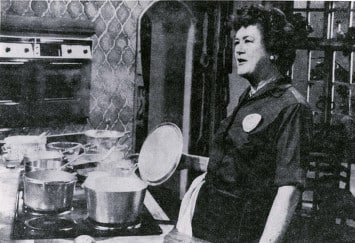She sometimes swore a blue streak over dull knives.
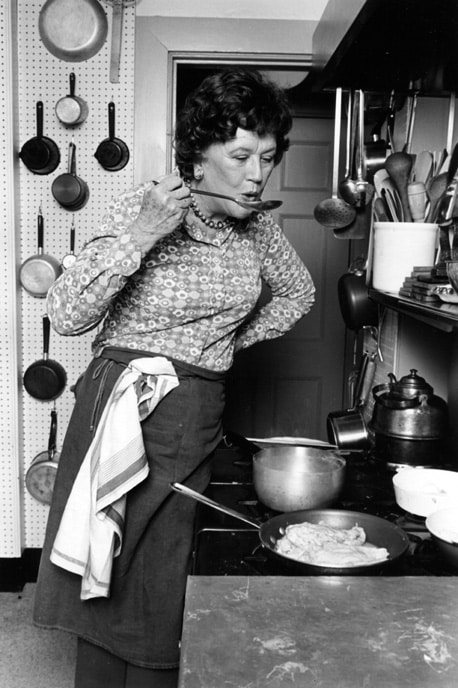
The New England Historical Society wrote about Julia Child’s pet peeve: kitchen knives. They were never sharp enough for the beloved French chef.
She sometimes swore a blue streak over dull knives. Her husband Paul Child once overheard her yell, “God damn it!—I’ve never yet gone into a private French kitchen where the knives are sharp! How the hell do these people think they’re going to cook when they can’t even slice a tomato?”
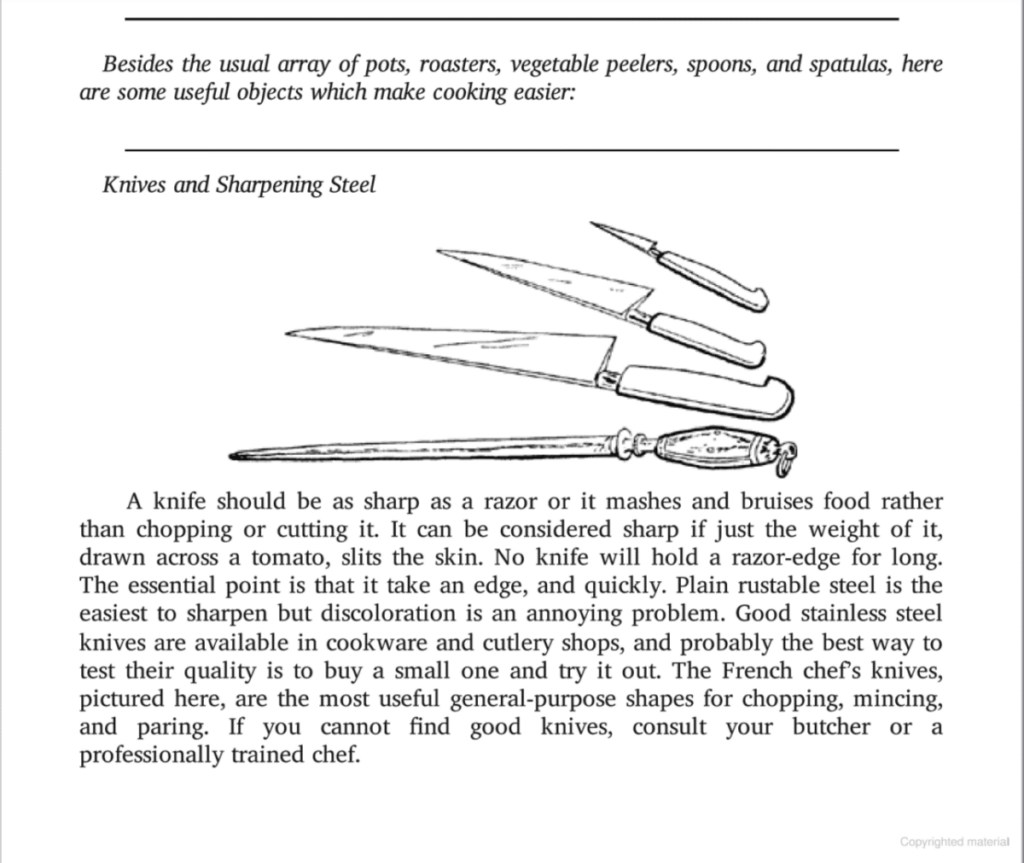
Julia Child is well-known in culinary circles. And well-documented in The American Masters series by filmmaker Marilyn Mellowes, director of American Masters: Julia Child! America’s Favorite Chef.
Scooping up a potato pancake, patting chickens, coaxing a reluctant soufflé, or rescuing a curdled sauce, Julia Child was never afraid of making mistakes. “Remember, if you are alone in the kitchen, who is going to see you?” she reassured her television audience. Catapulted to fame as the host of the series The French Chef, Julia was an unlikely star. Over 6′ 2″, middle aged and not conventionally pretty, Julia had a voice careened effortlessly over an octave and could make an aspic shimmy. She was prone to say things like “Horray” and “Yum, yum.” Her early culinary attempts had been near disasters, but once she learned to cook, her passion for cooking and her devotion to teaching, brought her into the hearts of millions and ultimately made her an American icon. To the fans who knew and loved her, she was known simply as Joooolia.
On camera, Julia’s presence was relaxed, reassuring and informal. But behind the unpolished quirky charm was a driven perfectionist, convinced that there was a right and a wrong way to do things.
Her pet peeve, dull kitchen knives, is an interesting story, as outlined by the NEHS:
In April 1951, while living in France, she was taken by an essay by Bernard DeVoto. In it, he railed against consumer rip-offs, particularly poor-quality household goods, particularly stainless steel knives. Months later, he repeated his tirade in a Harper’s magazine column. He went so far as to suggest kitchen knife manufacturers should be hauled before the House Un-American Activities Committee.
DeVoto criticized American-made stainless steel knives for their inability to hold an edge, and he detailed his continuing search for a carbon steel paring knife.
An excerpt from As Always, Julia: Letters of Julia Child and Avi DeSoto reads:
In “Crusade Resumed,” he revisited what he considered “the only mission I have ever set myself, that of trying to get for the American housewife a kitchen knife she can cut something with.” DeVoto criticized American-made stainless steel knives for their inability to hold an edge, and he detailed his continuing search for a carbon steel paring knife.
Julia initiated correspondence with DeVoto saying she thought he was “100% right” after reading his Harper’s Magazine critique of American kitchen knives, which resulted in a long friendship between Julia and his enterprising wife, Avis. The DeVotos lived in Cambridge, Massachusetts where Bernard was a historian and author, taught part-time at Harvard, wrote for influential periodicals and curated Mark Twain’s papers. His friend and biographer, Wallace Stegner described DeVoto as “flawed, brilliant, provocative, outrageous, … often wrong, often spectacularly right, always stimulating, sometimes infuriating, and never, never dull.”
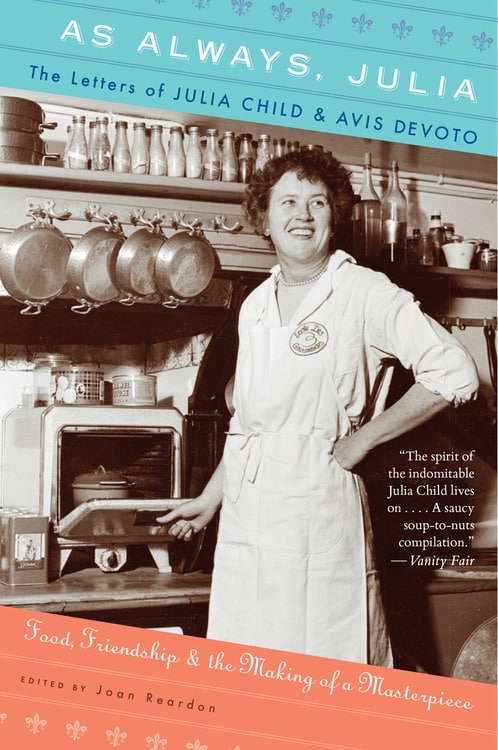
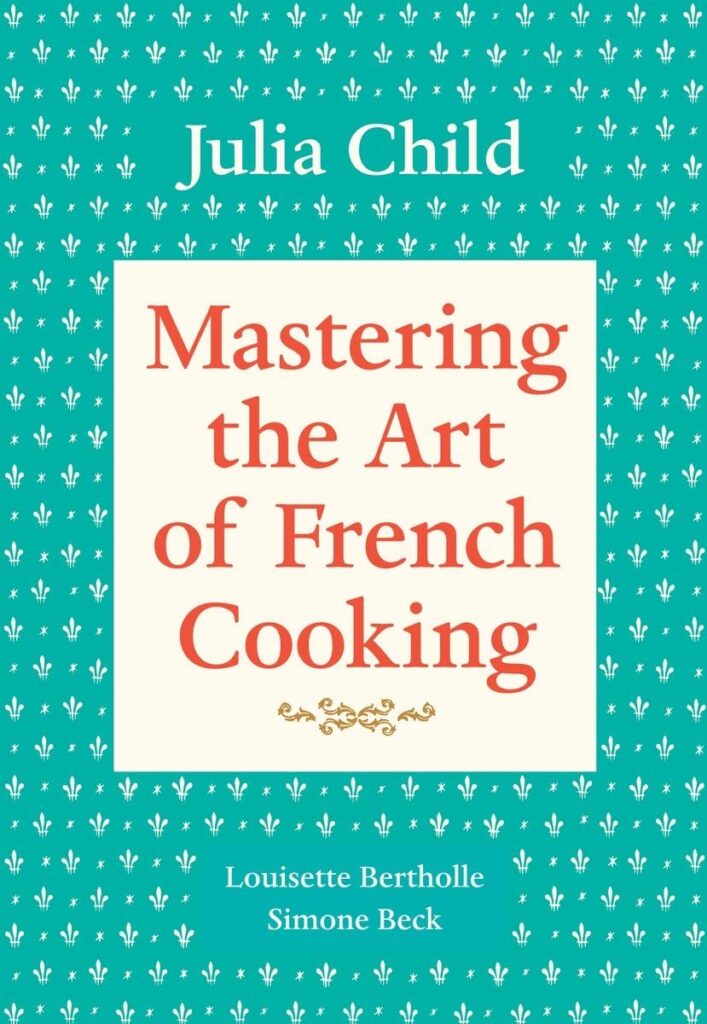
Avis was a book reviewer, editor and cook. Avis’ response began a long correspondence and friendship between the two women during Child’s work on her groundbreaking Mastering the Art of French Cooking (1961). According to Child acknowledged Avis as “wet nurse” and “mentor” to the undertaking. Avis became Julia’s advisor on publishing and the Ingredients, utensils, and preferences of American cooks.
It began with a shared search for a perfect carbon steel kitchen knife.
Her timing was perfect when she launched The French Chef in 1963. PBS broadcast a total of 199 programs, and American Masters wrote:
Soon a nation fed mindlessly on Shake n’ Bake, RediWhip and Tang began experimenting with quiche Lorraine, boeuf bourgignon, and reine de saba. Upwardly mobile Americans who regarded cooking as a waste of time, were suddenly seizing whisks, molds and copper bowls, transforming the kitchen into the most important room in the house and making cooking a national pastime.
It began with a shared search for a perfect carbon steel kitchen knife.
Julia Child’s influence on generations of American women in the kitchen is exceptional and enduring. As an unlikely hero who championed fun and experimentation in the kitchen, we continue to look to her for inspiration and advice. ![]()
In Partnership with Shun Cutlery
